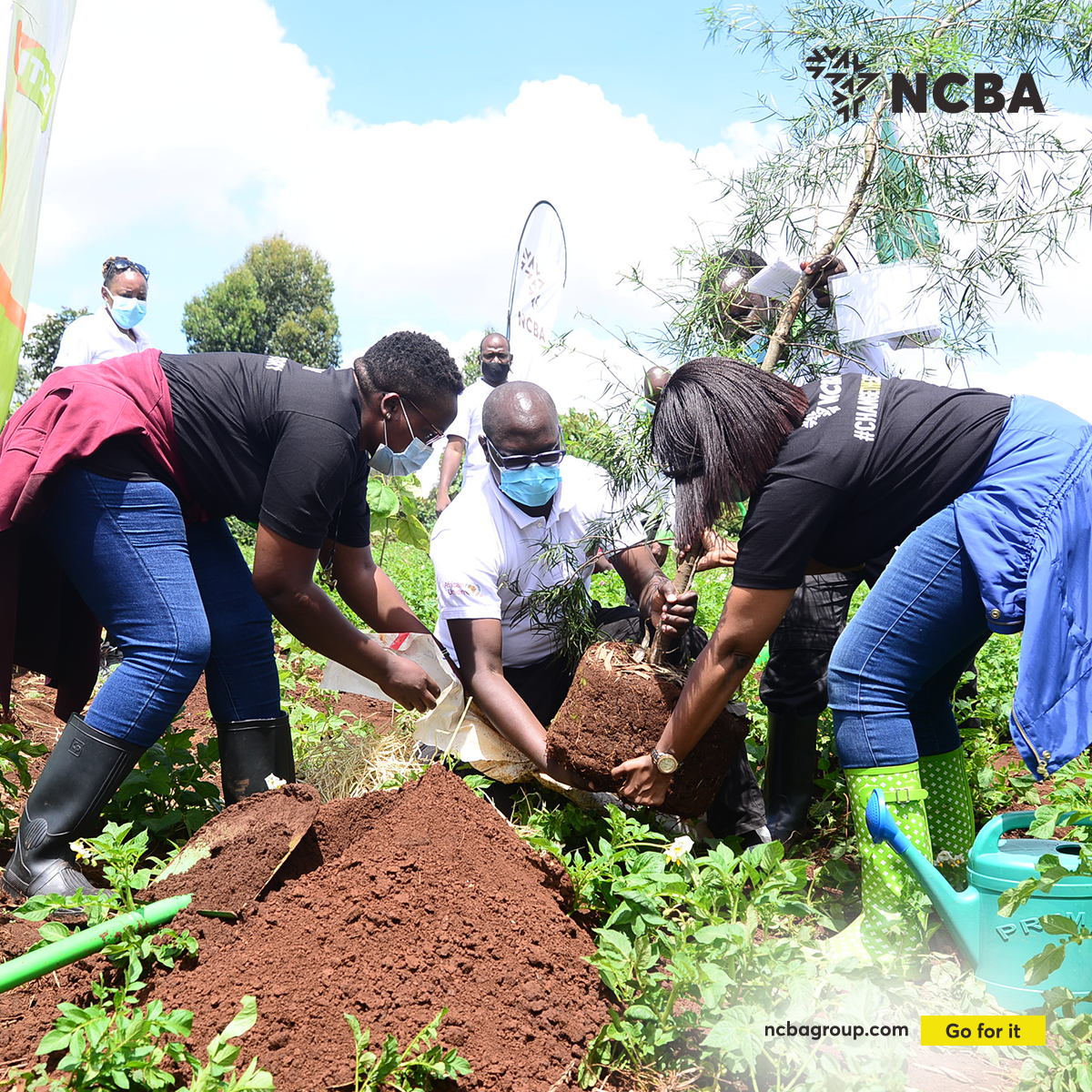



Tree planting should be everyone’s responsibility

Tree planting should be everyone’s responsibility
By John Gachora, NCBA Group Managing Director
Kenya joined the rest of the world to mark Earth Day a few weeks ago as the country continues to face greater threat from global warming.
Earth day reminds us of the importance of protecting nature to achieve a just balance among the economic, social and environmental needs of the present and future generations.
It is all too clear to us that climate change is a serious threat that we must address with urgency. It is five years since human-induced warming reached the 1°C mark mainly due to increased burning of fossil fuels, cutting down forests and farming livestock.
We need to face the reality that Kenya’s climate is rapidly changing. Since 1960, Kenya has experienced a general warming trend, reported as being about 0.21°C per decade. This temperature increase has been observed across all seasons, but particularly from March to May.
During the March to May season 2020, many weather stations recorded the highest amounts of rainfall in decades, with some recording the highest amounts on record.
The persistent and heavy rainfall during the 2020 long rainy season triggered flash floods, exceptionally high peak river flows and lake levels, with massive loss of property and life, displacement of society, and many other socio-economic impacts at a time when COVID-19 was beginning to ravage the region.
The impact of floods were exacerbated by non-climatic factors such as, the encroachment of populations into flood prone areas; wetland degradation including sediment pollution of rivers; deforestation and land degradation among other land use systems that contribute significantly to soil erosion; higher water runoff, flash floods, landslides and loss of land productivity.
Low-income and rural communities, especially in marginalized areas are already bearing the brunt of climate change and are disproportionately on the front lines of environmental disasters.
Without trees, rain runs off the land and erodes the soil into rivers and streams, raising the water level. It is a fact that forests can soak up excess rainwater, preventing run-off and damage from flooding.
Kenya needs to plant at least 2 billion tree seedlings by 2022 in a bid to increase its forest cover and bring us closer to the recommended national coverage of 10 percent.
The national forest cover currently stands at 7.2% covering 4.2 million hectares having grown from 6.99% 12 years ago.
In addition to planting trees in the forests, more trees should be planted on farms, along the rivers and in other public lands so that Kenya can attain over 10% tree cover by 2022.
In 2018, NCBA embarked on a reforestation journey to support the government’s agenda of attaining 10% forest cover by 2022.
Through a campaign dubbed #ChangeTheStory, we had a rallying call to create a movement that awakened the consciousness of Kenyans to plant and conserve trees. The ambition is to plant 30 million trees.
This campaign is in collaboration with different stakeholders led by Kenya Forest Service. Together we have jointly planted over 7 Million trees across Kenya.
In July 2020, we started development for our 1 million Indigenous Tree Seedling Nursery project in Karura Forest. The main objective for this project is to ensure we have a better climate, support the government seedling deficit within the country, provision of continuous and affordable supply of quality seedlings.
To accelerate tree planting, we need both private and public sector involved in the national tree planting program. A certain number of trees should be allocated to every private or government sector organization with a piece of land and it must be made sure that the organizations grow those trees and take care of them. Farmers across the country and students at all levels should also be fully engaged in tree planting projects.
If global warming continues unchecked, it could have a devastating impact on our country, causing food shortages, raising water levels in our lakes and rivers and sparking extreme weather.
We all have an individual responsibility to protect our country’s future through planting more trees.
We can all draw inspiration from Kenyan environmental activist and Nobel winner, Professor Wangari Maathai who once said, “It’s the little things citizens do. That’s what will make the difference. My little thing is planting trees.”
Together, let’s Change the Story.
End